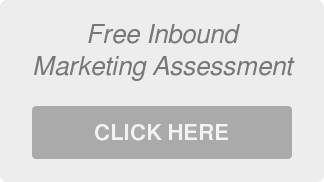![]() In today's digital landscape, mastering social media for B2B marketing is key for businesses looking to increase their online presence and drive meaningful engagement. Social media isn't just a platform for B2C interactions; it's a powerful tool for B2B companies to build relationships, showcase expertise, and convert leads. Here are some strategies to help you harness the full potential of social media for your B2B marketing efforts.
In today's digital landscape, mastering social media for B2B marketing is key for businesses looking to increase their online presence and drive meaningful engagement. Social media isn't just a platform for B2C interactions; it's a powerful tool for B2B companies to build relationships, showcase expertise, and convert leads. Here are some strategies to help you harness the full potential of social media for your B2B marketing efforts.
Understand Your Audience
Identify key decision-makers
One of the first steps in creating a successful B2B social media strategy is understanding your audience. Unlike B2C marketing, which focuses on consumers, B2B marketing targets other businesses. This means identifying key decision-makers within those businesses, such as CEOs, managers, and department heads.
Develop Buyer Personas
Develop detailed buyer personas that include information about your target audience's job titles, industries, challenges, and goals. This will help you tailor your content to address their specific needs and pain points.
Choose the Right Platforms
LinkedIn is one of the top platforms for B2B marketing. It's where professionals network, share industry insights and look for solutions to their business challenges. Use LinkedIn to share thought leadership content, case studies, and industry news.
Twitter is excellent for real-time engagement and industry updates. Use it to participate in relevant conversations, share quick updates, and keep up with industry trends.
While Facebook is often associated with B2C marketing, it can still be valuable for B2B. Use Facebook to build a community, share behind-the-scenes content, and promote events.
Although Instagram is more visually driven, it can be a great platform to showcase your company culture, share event highlights, and post infographics that explain complex concepts.
Create Valuable Content
Thought Leadership
Share insightful articles, whitepapers, and research to position your company as an industry leader. This type of content will help demonstrate your expertise and build trust with your audience.
Case Studies and Testimonials
Share stories about your products or services and how they have helped other businesses. Case studies and testimonials provide social proof and show potential clients the tangible benefits of working with you.
Educational Content
Educate your audience with how-to guides, webinars, and video tutorials. Providing value through educational content can help establish your brand as a resource in your industry.
Engage With Your Audience
Respond to Comments and Messages
Social media is a two-way street. Promptly respond to comments and messages to engage with your audience. This shows that you value their input and are committed to building relationships.
Participate in Industry Conversations
Join relevant groups and participate in discussions. Sharing your insights and connecting with other professionals can help increase your visibility and establish your company as a thought leader.
Use Hashtags Strategically
Use relevant hashtags to increase the discoverability of your posts. Hashtags help categorize your content and will make it easier for users to find information on specific topics.
Utilize Paid Advertising
LinkedIn Ads
LinkedIn offers various ad formats, including sponsored content, message ads, and dynamic ads. Use these to target specific industries, job titles, and companies, ensuring that your ads reach the right audience.
Twitter Ads
Promote tweets and run Twitter ads to reach a broader audience. Twitter's targeting options allow you to focus on specific demographics, interests, and behaviors.
Facebook Ads
Leverage Facebook's advanced targeting options to reach decision-makers within specific industries. Use Facebook ads to promote webinars, downloadable, and other valuable content.
Build A Community
Host Webinars and Live Events
Engage with your audience by hosting live webinars and events. These interactive sessions provide valuable insights and allow you to connect with prospects in real time.
Encourage User-Generated Content
Encourage your audience to share their experience with your products or services. User-generated content will add authenticity to your brand and foster a sense of community.
Foster Relationships
Focus on building long-term relationships instead of just making a sale. Engage with your audience regularly and provide value through consistent and meaningful interactions.
Mastering social media for B2B marketing involves understanding your audience, choosing the right platforms, creating valuable content, engaging with your audience, utilizing paid advertising, measuring performance, and building a community.





